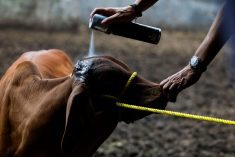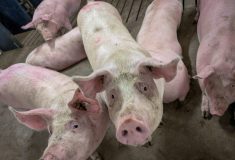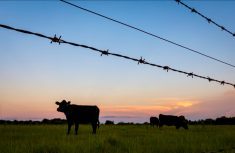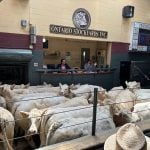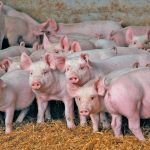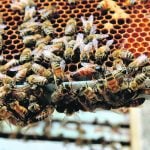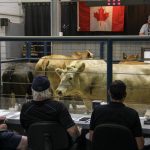China and the Philippines have eased export market pressure on Canadian pork by clarifying that their recent bans are limited to hogs and pork from Alberta, the Reuters news agency reported Wednesday.
The two countries were among about a dozen that have put restrictions in place since a human influenza strain, H1N1, was found to have jumped to a hog herd in central Alberta’s Clearwater County.
Animals in the 2,200-hog herd are reported to have recovered from the virus, although their owner’s farm remains under quarantine, which led him to cull about 500 animals earlier this week out of concern for the animals’ welfare.
Read Also
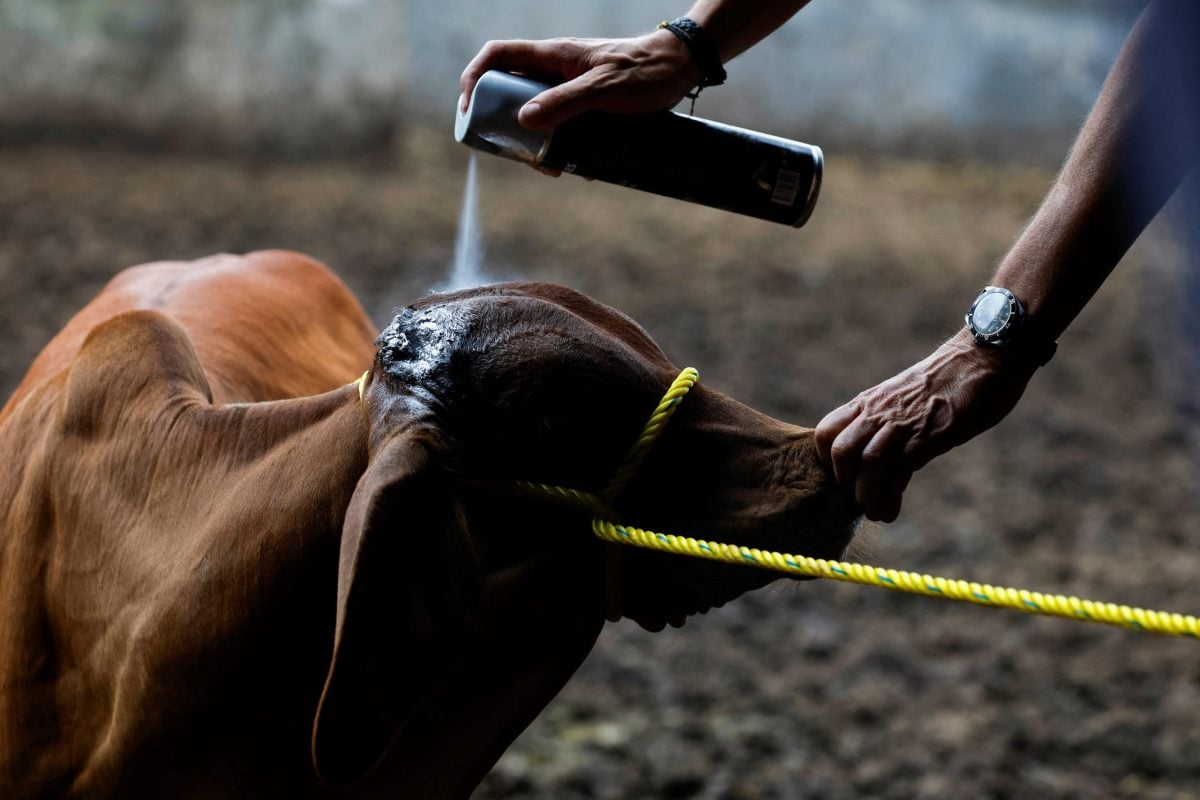
Mexico reports 53 per cent increase in flesh-eating screwworm cases since July
Mexico has recorded 5,086 cases of flesh-eating screwworm in animals as of August 17, a 53 per cent jump from the number of cases reported in July, according to Mexican government data seen by Reuters on Wednesday.
According to Reuters, China has always said its ban only applies to Alberta, but traders have reportedly held off on shipments from other parts of Canada for fear that China would extend its ban.
Reuters quoted the Canadian Food Inspection Agency as saying the Philippines clarified its ban on Alberta pork and hogs last Friday.
Reuters reporter Rod Nickel quoted Jacques Pomerleau, executive director of Canada Pork International, as saying small markets such as El Salvador and Croatia have also removed or limited their own bans on Canada’s pork and hogs.
“Most of them are not significant markets but you don’t want anybody at the end of the day with measures against you for H1N1,” Pomerleau was quoted as saying.
Generally, he told Reuters, Canada’s pork exports are now down about five to 10 per cent since the appearance of H1N1 in the country. That’s up from the 10 to 15 per cent increase Pomerleau reported on May 4, Reuters noted.
The British Department for Environment, Food and Rural Affairs (DEFRA), meanwhile, has added its assessment to the defense of Canadian pork.
“We continue to consider that there would be a negligible likelihood of introducing new variant influenza A/H1N1 to the U.K. by the legal import of pigs or pig products from Canada,” DEFRA said in a May 6 report from its veterinary science team for international disease monitoring.
The European Union’s current trade rules for live pigs and pig products “are considered appropriate to mitigate the risk of disease introduction,” the report said, adding that “there remains no requirement to alter current trade rules for pigs or pig products from Canada.
“Another possible route for disease introduction into pig herds in the U.K. would be through direct or indirect contact of an infected person with a pig farm or workers on a pig farm,” the department said. “Livestock workers recently returning from an affected country and/or showing symptoms of an infectious disease should not have contact with pigs or pig farms.
“This advice applies to many diseases in common with humans and pigs, not just influenza,” DEFRA noted.


